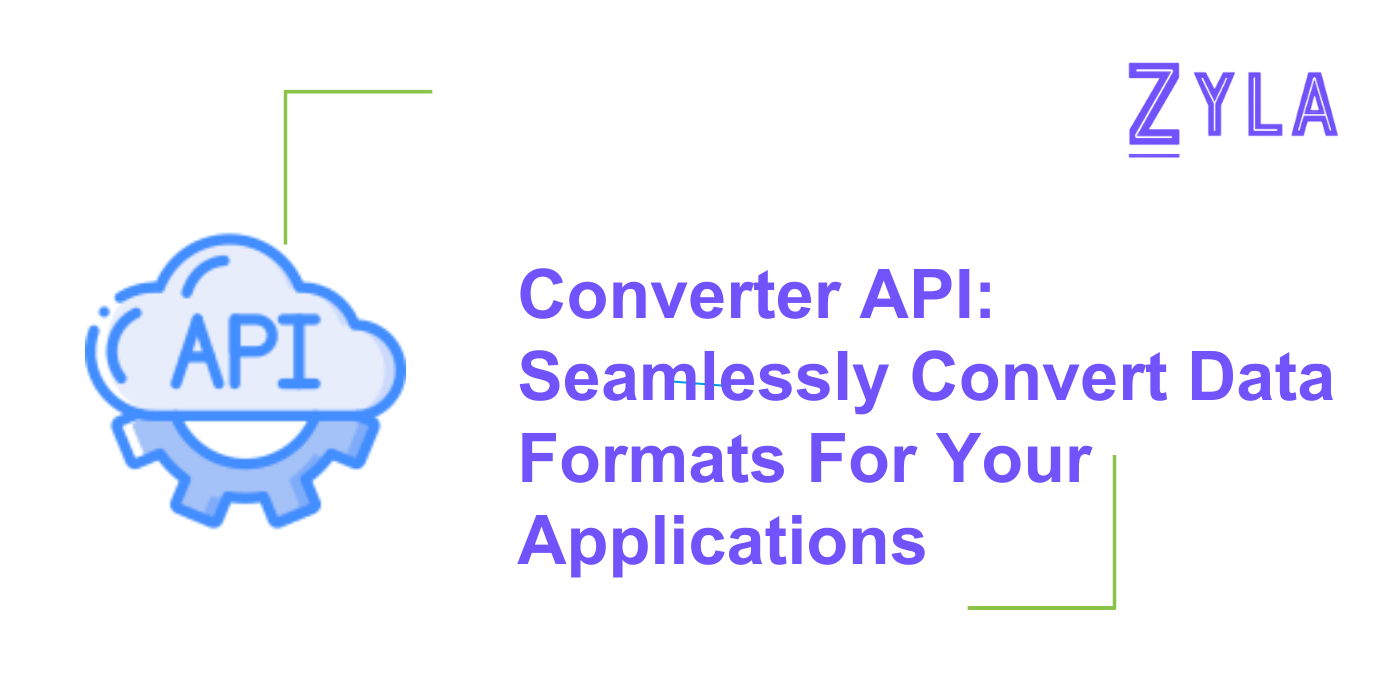Converter API: Seamlessly Convert Data Formats For Your Applications

In today's interconnected digital world, the ability to seamlessly convert data formats is crucial for the smooth functioning of applications. Whether you're working with text, images, videos, or any other type of data, having a reliable Converter API at your disposal can save you time and effort by automating the conversion process.
Why You Need a Converter API
Simplifying Data Transformation
One of the primary reasons to use a Converter API is to simplify the process of data transformation. Instead of manually converting data from one format to another, you can leverage the API to handle the conversion seamlessly. This not only saves you valuable time but also reduces the risk of errors that can occur during manual conversion.
Enhancing Compatibility
Different applications and systems often use different data formats to store and process information. A Converter API allows you to bridge the gap between these formats, making it easier to exchange data between different platforms. This enhanced compatibility can help streamline your workflows and improve overall efficiency.
Improving Performance
By automating the data conversion process, a Converter API can help improve the performance of your applications. Instead of relying on manual interventions, the API can convert data quickly and accurately, ensuring that your applications run smoothly and deliver a seamless user experience.
Key Features of Converter API
Support for Multiple Formats
A robust Converter API should support a wide range of data formats, including popular formats like JSON, XML, CSV, and more. This ensures that you can convert data between different formats without any hassle, making it easier to work with diverse data sources.
Customization Options
To cater to your specific needs, a good Converter API should offer customization options that allow you to fine-tune the conversion process. Whether you need to adjust formatting, specify encoding settings, or handle special data types, having the ability to customize the conversion process can be invaluable.
Scalability and Reliability
When choosing a Converter API, it's essential to look for a solution that is scalable and reliable. The API should be able to handle a large volume of data conversion requests efficiently, without compromising on performance. Additionally, reliable uptime and data security measures are crucial to ensure that your data is handled safely and securely.
Easy Integration
Integrating a Converter API into your existing applications should be a straightforward process. Look for an API that offers comprehensive documentation, SDKs in popular programming languages, and dedicated technical support to help you seamlessly integrate the API into your workflows.
Use Cases for Converter API
E-commerce Platforms
E-commerce platforms often deal with a variety of product data in different formats. A Converter API can help standardize product information, making it easier to import/export data, update product listings, and ensure consistency across multiple channels.
Media and Entertainment Industry
In the media and entertainment industry, content is often shared in various formats such as images, videos, and audio files. A Converter API can streamline the process of converting media files, enabling seamless sharing and distribution of content across different platforms.
Data Analytics and Reporting
For businesses that rely on data analytics and reporting, a Converter API can simplify the process of converting raw data into actionable insights. By converting data into a standardized format, businesses can analyze trends, generate reports, and make informed decisions based on accurate data.
Conclusion
In conclusion, a Converter API is a valuable tool for businesses and developers looking to streamline data conversion processes in their applications. By leveraging a reliable and feature-rich API, you can simplify data transformation, enhance compatibility between different systems, improve application performance, and unlock new possibilities for data-driven innovation. Consider integrating a Converter API into your workflows to optimize your data handling processes and stay ahead in today's fast-paced digital landscape.





